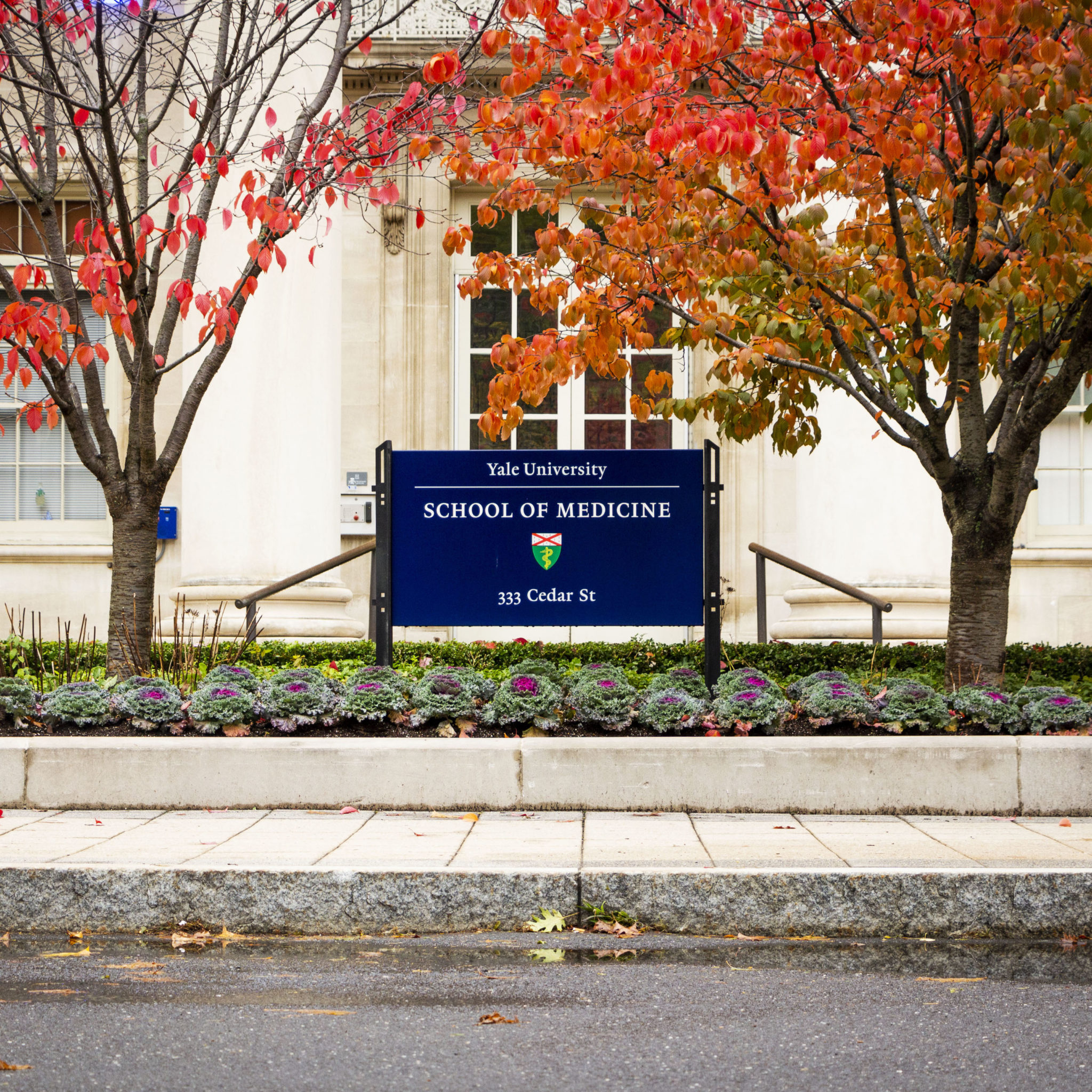School of Medicine announces gift to establish Chênevert Family Brain Tumor Center
Yale School of Medicine announces a gift from Louis Chênevert to establish a Chênevert Family Brain Tumor Center at the Yale Cancer Center, paving the way for more comprehensive treatments.

Marisa Peryer, Senior Photographer
A gift from Louis Chênevert, the chairman of the Yale Cancer Center Director’s Advisory Board, his wife and his family will expand clinical care and research at the Brain Tumor Center within Smilow Cancer Hospital at the Yale Cancer Center, reestablishing the center under the Chênevert family’s name.
On Feb. 25, the Yale School of Medicine announced this gift from Chênevert to establish the Chênevert Family Brain Tumor Center at the Yale Cancer Center. Chênevert is a survivor of stage 4 central nervous system lymphoma and was treated at Yale. Although a Brain Tumor Center already exists at Smilow Cancer Hospital, the gift will allow it to expand multidisciplinary cancer research by physicians and scientists.
“The gift is truly transformational,” Joachim Baehring, vice chair of clinical affairs in the Department of Neurology at the School of Medicine, said. “It will enable us to get to the next level, both on the side of patient care and on the side of research for patients with the most devastating brain tumors.”
According to Baehring, the gift from Chênevert will make possible the creation of a long-discussed comprehensive and multidisciplinary center.
Baehring said that he and his colleagues at the Brain Tumor Center were excited by the announcement. But because the announcement is so recent, Baehring said it could take some time before the full impact of the gift will be visible.
This gift is not the first step that has been taken to improve the Brain Tumor Center. Baehring said that additions to faculty over the years have already opened the door to groundbreaking research, but “what was missing was really our ability to bring this [research] to the patients’ bedside.”
With the new gift, Baehring believes that the missing piece will finally be in place. He explained that the Brain Tumor Center will be able to establish a sustainable pool of resources that is not dependent on short-term funding like grants. This will enable the center to hire scientists and clinician scientists, fund start-up projects and address the need for a database of treatment information and a well-organized tissue bank — areas that would have a direct impact on patient care.
Clinical Program Leader at the Brain Tumor Center Jennifer Moliterno said that there have been ongoing discussions for how to best allocate the funds given by Chênevert “to help develop cutting-edge treatment based on the research.”
The Brain Tumor Center is already a leader in clinical care and brain tumor research, Moliterno said. In addition to clinical expertise, for example, the center has innovative technology including an intraoperative MRI — a device that allows surgeons to observe in real time how much of a tumor has been removed during surgery.
“We take care of the most patients with brain tumors in the state of Connecticut, and we have patients also coming to us from across New England and beyond for our clinical expertise,” Moliterno said. “We’re simply able to do things surgically that others cannot.”
There are many difficulties when it comes to treating brain tumors — drugs must cross the blood-brain barrier, radiation and chemotherapy can be toxic and brain tumors alter people’s ability to function, according to Moliterno. And for some types of brain tumors, there are no viable chemotherapy treatment options. Because of these unique challenges, Moliterno said that it is important to continue working to improve existing therapies and develop alternatives.
Baehring said that although brain cancer is uncommon, it is important to research new treatments because it is such a serious condition that brings many complications to patients’ lives.
Assistant professor of clinical neurology at Yale School of Medicine Nicholas Blondin echoed Baehring’s sentiments and added that public awareness of brain cancer has grown due to high-profile cases of it.
Some of the work currently being done at the Brain Tumor Center includes a study which examines immunotherapy — a treatment that has previously been ineffective for brain tumors, with less than 5 percent of patients responding positively, according to Blondin. The study will try to understand this problem and figure out how to make immunotherapy treatments more effective for brain tumors.
Moliterno also expressed excitement about the Brain Tumor Center Genomic Study, which focuses on the genomic analysis of brain tumor cells to identify mutations and allow for more precise treatments.
Blondin explained that patients who have surgery at Yale New Haven Hospital can be enrolled in the study and have their brain tumor cells sequenced.
“That can help us understand the biology of the cancers,” Blondin said. “We’re figuring out that there are various subtypes of brain cancer that can be defined by their genomic analysis.”
Smilow Cancer Hospital is located at 35 Park St.
Aislinn Kinsella | aislinn.kinsella@yale.edu
Correction, March 10: A previous version of this article incorrectly stated that the gift came from only Louis Chênevert, when it was in fact from both him and his wife and some family members. The center will be named for the Chênevert family, not just Louis Chênevert. The article has been updated.







